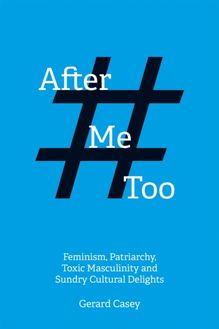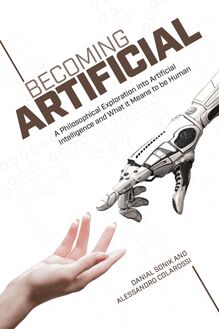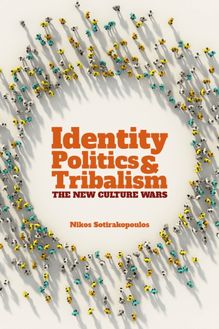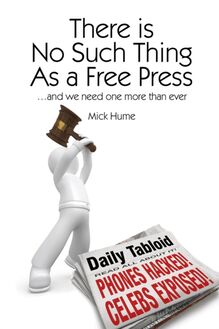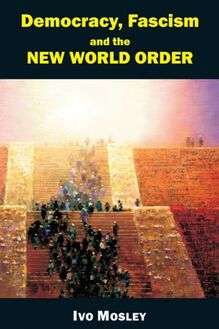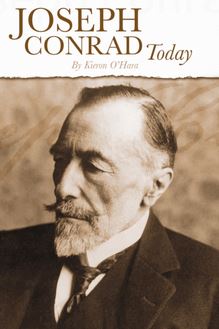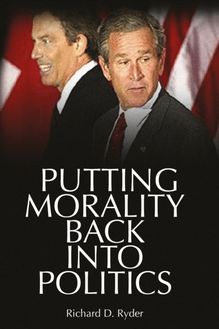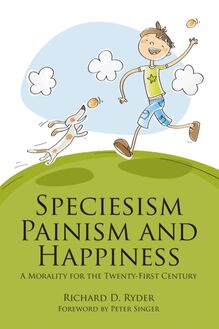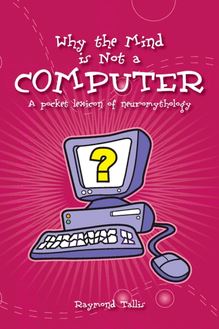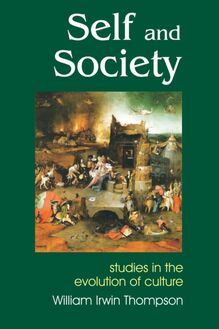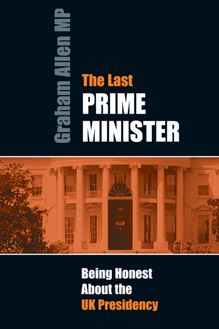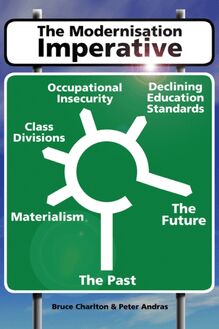-
 Univers
Univers
-
 Ebooks
Ebooks
-
 Livres audio
Livres audio
-
 Presse
Presse
-
 Podcasts
Podcasts
-
 BD
BD
-
 Documents
Documents
-
- Cours
- Révisions
- Ressources pédagogiques
- Sciences de l’éducation
- Manuels scolaires
- Langues
- Travaux de classe
- Annales de BEP
- Etudes supérieures
- Maternelle et primaire
- Fiches de lecture
- Orientation scolaire
- Méthodologie
- Corrigés de devoir
- Annales d’examens et concours
- Annales du bac
- Annales du brevet
- Rapports de stage
La lecture à portée de main
Vous pourrez modifier la taille du texte de cet ouvrage
Découvre YouScribe en t'inscrivant gratuitement
Je m'inscrisDécouvre YouScribe en t'inscrivant gratuitement
Je m'inscrisEn savoir plus
Vous pourrez modifier la taille du texte de cet ouvrage
En savoir plus

Description
Sujets
Informations
| Publié par | Andrews UK |
| Date de parution | 22 juin 2018 |
| Nombre de lectures | 0 |
| EAN13 | 9781845409838 |
| Langue | English |
Informations légales : prix de location à la page 0,0550€. Cette information est donnée uniquement à titre indicatif conformément à la législation en vigueur.
Extrait
SCAM
So-Called Alternative Medicine
Edzard Ernst
SOCIETAS
essays in political
& cultural criticism
imprint-academic.com
2018 digital version converted and published by
Andrews UK Limited
www.andrewsuk.com
Copyright © Edzard Ernst, 2018
The moral rights of the author have been asserted.
No part of this publication may be reproduced in any form without permission, except for the quotation of brief passages in criticism and discussion.
Imprint Academic Ltd., PO Box 200, Exeter EX5 5YX, UK
To Danielle
Preface
I should perhaps start with a warning: this book might unsettle you. If you are a true believer in so-called alternative medicine (SCAM), you may find the things I am about to tell you disturbing. My book was not written for true believers. In my experience, they often are emotionally or intellectually unable to rationalise and to change their minds. Any attempt at opening their eyes and making them think critically might therefore be a waste of time.
This book was written for everyone who has an interest in SCAM and is open to considering the evidence. Yet it is not a guidebook that tells you which SCAM can be employed for what condition. It is a compilation of 50 essays about SCAM in more general terms. I ordered them loosely under seven headings and have tried to write them in such a way that they can be read independently. This necessitated a certain amount of repetition of crucial themes which, I hope, is forgivable. My main aim in publishing this book is to stimulate your ability to think critically about healthcare in general and, of course, about SCAM in particular.
The book is based on my 25 years of research in SCAM. It quotes numerous investigations by my team and by other researchers. It also discusses many recently published examples of pseudo-science, misleading information and unethical SCAM-promotion. The text avoids technical language and should be easily understood by anyone. The ‘glossary’ at the end of the book provides additional explanations of more complex issues and terminology. Throughout the book, I use hints of irony, touches of satire, and sometimes even a degree of exaggeration. This makes certain points clearer and might even make you smile from time to time.
Working on this book was great fun, and I sincerely hope you find the result both informative and entertaining.
1. Introduction
Usually and fitly, the presence of an introduction is held to imply that there is something of consequence and importance to be introduced.
-Arthur Machen
Why do I call it SCAM? Why not just ‘alternative medicine’ or one of the many other possible names for it? [BOX 1] Mainly because, whatever it is, it is not an alternative: if a therapy does not work, it cannot be an alternative to medicine; if a therapy does work, it does not belong to alternative medicine but to medicine.
Therefore, I think that so-called alternative medicine or SCAM is not a bad term to use.
My years in SCAM research can be divided into three periods. The first was characterised by defining the aims of my research, assembling a team, getting the infrastructure sorted and starting a research programme. From the very beginning, I had made it clear that I needed to be sceptical and was determined not to promote SCAM but to critically evaluate it and produce good science on the way. In my memoir, [1] I describe the moment when I expressed this publicly for the very first time:
As my new position was the first chair of its kind, the university administrators had decided to organise a press conference... In this particular instance, not only I, but also Sir Maurice Laing (who had endowed the chair), and finally, the Vice Chancellor of the university were to make brief statements, after which the journalists would have an opportunity to quiz us. As alternative medicine was a controversial topic, we tried to play it safe: the Vice Chancellor praised the generosity of Sir Maurice and spoke of the unique opportunity his endowment would offer for both the university and the field of complementary medicine, as well as of the University’s good fortune in finding an experienced professor to tackle this difficult but important task. For his part, Sir Maurice told the audience of his deep conviction that rigorous research was the best way to reveal the true value of the treatments that he and his wife had repeatedly found helpful. Then it was my turn. I outlined my professional background, explained what rigorous research in alternative medicine would entail and where it might take us. When I had finished, one journalist in the front row raised his hand: ‘What will you do, Prof Ernst, when your medical colleagues turn out to be sceptical about alternative medicine?’ Shooting from the hip, I answered: ‘I am not too worried about that, because I intend to be more sceptical than they are.’
Realising how controversial some of our research might become, I made a conscious effort during this first period to keep clear of disputes and to avoid the limelight. I wanted to first do my ‘homework’, analyse the evidence, produce own results and be quite sure of my own position before engaging in any public debates. During this time, my team and I published almost exclusively in medical journals, lectured to medical audiences and generally kept a low a public profile. [BOX 2]
The second period of my involvement in SCAM was characterised by yet more research and the realisation that, occasionally, it would be necessary to ‘stick my head out’ and stand up publicly for our findings. The evidence generated not just by our own research but by scientists across the planet more and more clearly showed that: few forms of SCAM seemed to work, many seemed not to do more good than harm, and most SCAMs were so under-researched that it was impossible to tell.
In our ‘Desktop Guide to Complementary and Alternative Medicine’ [2] we evaluated around 700 treatment/condition pairs and determined the percentage that was supported by sound evidence. The resulting figure was 7.4%. [3] Put simply, only about 7 of 100 SCAMs seemed to be based on good evidence and could be recommended for routine use. Analysing the findings of another book, Natural Standard , [4] in a similar fashion produced comparable results. The authors of this volume had graded 507 therapy/condition pairs. Of these, 49 were supported by ‘strong scientific evidence’. The percentage of evidence-based SCAMs thus amounted to 9.7%. The two figures (7.4 and 9.7%) are strikingly similar, yet I fear that both were gross over-estimates. They were derived from books which focused on SCAMs for which there was at least some evidence. Had all SCAMs been included indiscriminately, the resulting percentages would certainly have been much smaller.
Surely this type of information was important for consumers, I felt. In the realm of SCAM, the public often make decisions without consulting even a single healthcare professional. Therefore, they need accurate and reliable information regardless of whether the evidence was positive or negative. Realising this, I began publishing in the daily papers, lecturing regularly to lay audiences, and addressing the public in any way that seemed appropriate.
By the late 1990s, several independent analyses had shown that my team had become the most productive research unit in SCAM worldwide, [5] and we started receiving requests from scientists across the globe to join us. Many of those individuals later went back to their home countries to occupy key positions in research. Our concept of critical evaluation thus spread around the world. Amongst the ~90 staff who have worked for me during the last 25 years, we had many enthusiastic and gifted scientists. I owe thanks to all of them.
The third phase of my involvement in SCAM is still ongoing; it started after I retired from my Exeter post in 2012/ 2013 (I officially retired in 2012 but was subsequently re-employed by my university for half a year). Now I had more time and freedom for reflection, and consequently my attitude towards SCAM became more sceptical. I started writing a regular blog (where many of the ideas for this book were first generated), published several books, [6] , [7] , [8] and no longer had to fear getting reprimanded by my peers for not always adhering to the rules of political correctness. In 2015, I was awarded the John Maddox Prize for standing up for science, [9] and in 2017 I received the Ockham Award [10] for the work on my blog (http://edzardernst.com/).
Some of my critics like to claim that I never did anything but debunk SCAM. This is certainly not true. In 2008, I even published a summary of all the SCAMs that, according to our analyses, were based on sound evidence. [11] What is true, however, is that I prefer rigorous science to wishful thinking, a stance that many SCAM proponents find hard to accept. The disappointment of SCAM enthusiasts had been palpable virtually from the start. In my memoir, [12] I describe the moment when I first realised this:
...I had accepted an invitation to address this meeting packed with about 100 proponents of alternative medicine. I felt that their enthusiasm and passion were charming but, no matter whom I talked to, there seemed to be little or no understanding of the role of science in all this. A child-like naïvety pervaded this audience: alternative practitioners and their supporters seemed a bit like children playing ‘doctor and patient’. The language, the rituals and the façade were all more or less in place, but somehow they seemed strangely detached from reality. They passionately wanted to promote alternative medicine, while I, with equal passion, wanted to conduct good scie
-
 Univers
Univers
-
 Ebooks
Ebooks
-
 Livres audio
Livres audio
-
 Presse
Presse
-
 Podcasts
Podcasts
-
 BD
BD
-
 Documents
Documents
-
Jeunesse
-
Littérature
-
Ressources professionnelles
-
Santé et bien-être
-
Savoirs
-
Education
-
Loisirs et hobbies
-
Art, musique et cinéma
-
Actualité et débat de société
-
Jeunesse
-
Littérature
-
Ressources professionnelles
-
Santé et bien-être
-
Savoirs
-
Education
-
Loisirs et hobbies
-
Art, musique et cinéma
-
Actualité et débat de société
-
Actualités
-
Lifestyle
-
Presse jeunesse
-
Presse professionnelle
-
Pratique
-
Presse sportive
-
Presse internationale
-
Culture & Médias
-
Action et Aventures
-
Science-fiction et Fantasy
-
Société
-
Jeunesse
-
Littérature
-
Ressources professionnelles
-
Santé et bien-être
-
Savoirs
-
Education
-
Loisirs et hobbies
-
Art, musique et cinéma
-
Actualité et débat de société
- Cours
- Révisions
- Ressources pédagogiques
- Sciences de l’éducation
- Manuels scolaires
- Langues
- Travaux de classe
- Annales de BEP
- Etudes supérieures
- Maternelle et primaire
- Fiches de lecture
- Orientation scolaire
- Méthodologie
- Corrigés de devoir
- Annales d’examens et concours
- Annales du bac
- Annales du brevet
- Rapports de stage
